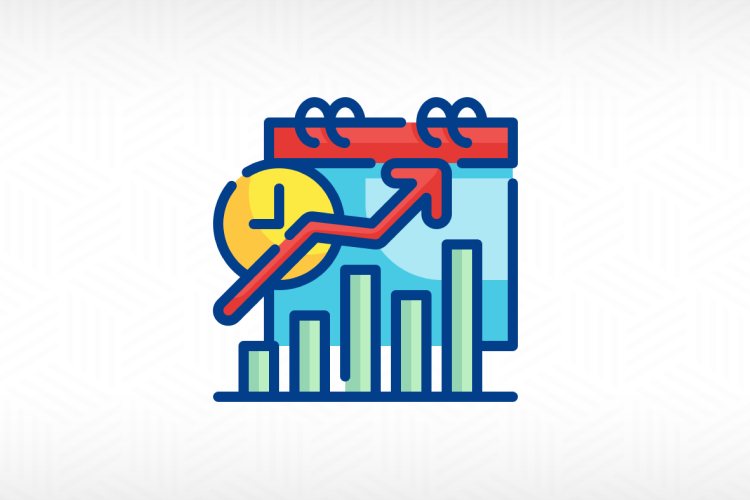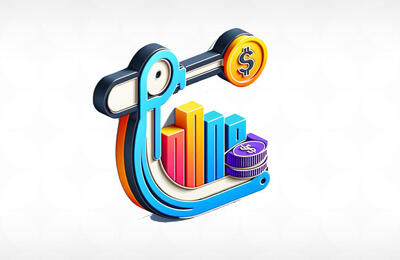
Constantly evolving and changing, the stock trading industry is being profoundly influenced by technology. Traders consistently seek real-time information regarding the most active stocks. However, due to advancements in technology, they also have access to decision-enhancing tools.
Towards the end of the 20th century, with the proliferation of computers, traditional approaches were superseded by digital platforms. This was made possible by the Internet's rapid expansion, which provided traders with instant access to current data, online platforms for brokerage services, and electronic networks for communication. The simplification of the process of developing more complex trading systems as a result of technological advancements has increased output and stimulated the formation of new markets.
Automation in Stock Trading
Trading algorithms execute trades using pre-programmed sets of instructions. These algorithms analyze market data, identify potential opportunities, and execute trades automatically based on preset criteria. By doing so, they can reduce the possibility of human mistake, improve trading strategies, and carry out orders at never-before-seen speeds.
High-Frequency Trading
Algorithms used in high-frequency trading, or HFT, trade exceedingly fast. These machines analyze minute inefficiencies in the market and trade in milliseconds, often profiting greatly from modest price movements. This focus on speed has fundamentally altered how traders interact with markets and brought attention to how important cutting-edge technology is.
Artificial Intelligence in Stock Trading
Machine learning, a subset of AI, has profoundly impacted stock trading. These algorithms:
- Adapt over time based on new data
- Predict stock price movements with increasing accuracy
- Identify complex market patterns unnoticeable to humans
This dynamic nature of machine learning offers traders a competitive edge, refining strategies to navigate volatile markets.
Natural Language Processing and Sentiment Analysis
NLP allows trading systems to analyze vast textual information, from news articles to financial reports. Coupled with sentiment analysis, these tools:
- Gauge market sentiment from social media or news trends
- Predict potential market reactions to global events
- Enhance trading strategies by incorporating public sentiment
Such capabilities make NLP and sentiment analysis invaluable for traders seeking insights beyond numerical data.
The Role of Social Media
Social media sites like Reddit and Twitter have grown into powerful forces in the digital era that affect the dynamics of the stock market. Conversational subjects, pop culture, and influencers' thoughts have the power to quickly change the mood of the market. It is clear that social media insights should be included into trading techniques in the modern day.
Crowdsourced Trading
Social media communities, such as WallStreetBets on Reddit, demonstrate the power of group decision-making. These internet discussion boards have become into gathering places for retail traders to exchange ideas and analysis. The plans of even seasoned financial organizations are challenged by these coordinated movements, which frequently result in unanticipated swings in the market.
Sustainability in Stock Trading
The market's priorities are changing due to the surge in Environmental, Social, and Governance (ESG) investing. Businesses that support ethical governance, preserve sustainable practices, and have a good social effect are attracting the attention of investors more and more. This shift reflects the market's growing recognition of the value of long-term sustainability above ephemeral profits.
Technology's Role in Sustainable Trading
Technology is essential to allowing sustainable trading since it makes evaluating a company's ESG commitments easier. The carbon footprint of a company, the success of its social programs, and the stability of its governance systems may all be tracked with the use of modern tools. These technology assessments are guiding traders toward better educated and conscientious choices.
The advantages of technological progress
The application of modern technologies has led to astonishing efficiency improvements in the stock trading industry. The time it takes to complete a deal has decreased, and traders now have access to timely information almost instantly. There is also less need for manual processes, which reduces the likelihood of error. When taken together, these improvements simplify and streamline the trading process.
Access to foreign stock markets has been facilitated by the development of cutting-edge trading platforms enabled by cutting-edge technological developments. Traders are no longer constrained by location and may diversify their holdings by entering new markets and exploiting opportunities anywhere in the world. Barriers to access into the stock market have been greatly reduced as more individuals than ever are connected to the rest of the world.
Innovations in Stock-Trading Technology
From maximizing social media use to embracing sustainable business methods, and from increasing productivity to enlarging access to global markets, technology has seen a noticeable shift. Traders who are able to take use of emerging technologies will be at an advantage in an increasingly complex financial market. In conclusion, technological developments and the capacity to adapt will have a significant impact on the future of stock trading, stressing the need of always being one step ahead of the competition.













